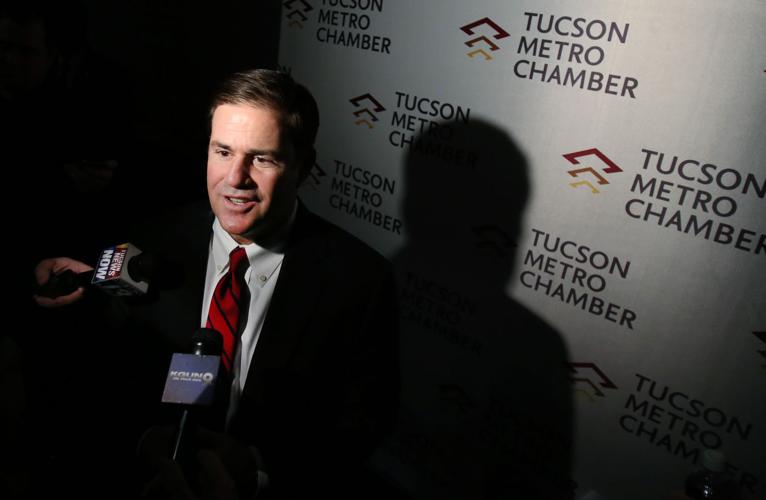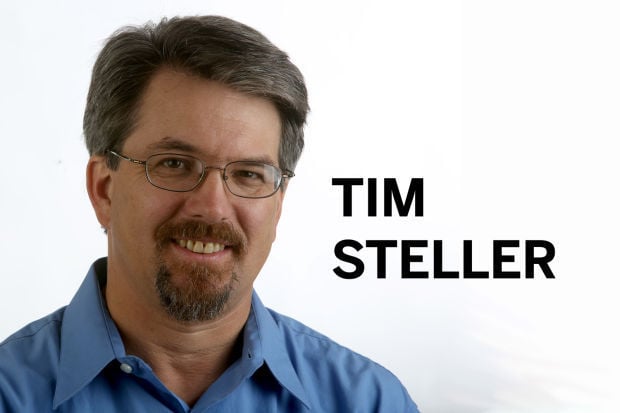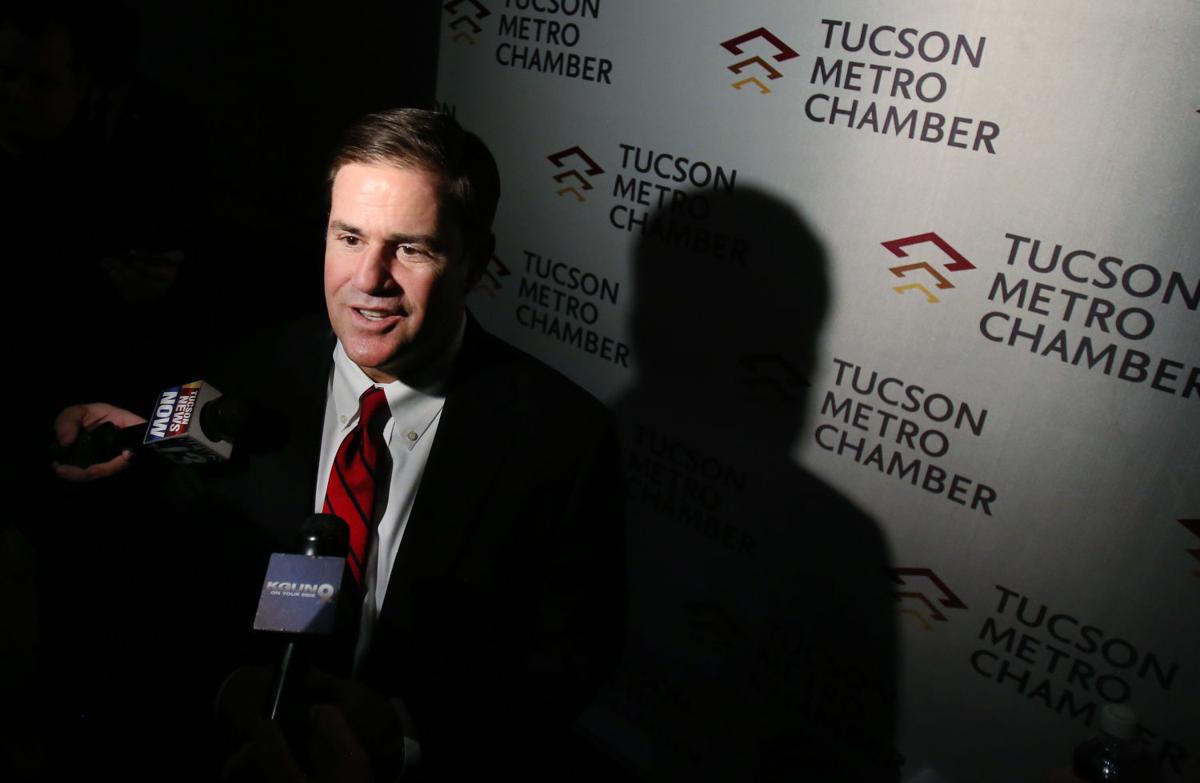Gov. Doug Ducey won his office on the strength of the argument that he, a successful businessman, was the one to ignite Arizona’s economy.
After hearing his state of the state speech twice — online Monday from Phoenix and live Tuesday in Tucson — I have my doubts.
Not doubts that the state’s economy will grow under Ducey. It has, and it will. But doubts that his single-minded focus on economic growth will yield the benefits for Arizona’s way of life that he hopes they will.
Take his repeated promise to continue reducing taxes.
“Together, we will lower taxes this year, next year and the year after,” he said in the speech.
My question is — why, when we can’t pay for the state’s fundamental functions already?
Leaving aside sales tax rates, Arizona is a low-tax state. This year, the state is projected to spend less as a portion of residents’ income than it has in at least three decades. Yet our needs continue to grow with population.
One of many crucial examples, an issue the governor seems to be monitoring, is the Department of Child Safety. The caseloads for workers who investigate reports of neglected and abused children have been far above recommended levels for years.
We found out in 2013 what happens when the agency must handle more cases than it can: 6,600 cases were simply stashed away as “not investigated.” But without the money to hire enough case workers or pay them better, we can expect the occasional tragedy or scandal.
I got the chance to ask Ducey one question and a follow-up after the Tucson event, and I decided to focus on taxes, asking how he expects to solve Arizona’s problems if he and the Legislature keep reducing revenue through tax cuts. Here’s what he said:
We added 56,000 new jobs last year. We added 100,000 new citizens. We’re growing our state and we’re growing our economy. We’re going to be competitive against states like California and Illinois that are going the wrong direction, and states like Texas are improving their quality of life and their environment for businesses. We want to be at the table when these businesses are making decisions about where they’re going to locate, and Arizona is going to be competitive in those decisions.
Not hearing an answer to my question, I asked if he thought reducing tax rates would increase tax revenue to the state — a common supply-side conception that only works in high-tax situations. Ducey’s response:
I think it’s part of the entire package. It’s, what’s the tax burden? What’s the regulatory environment? Are you business-friendly? Is there political consistency? Then, what’s the quality of life? Arizona is a great state. We have a great product and package to sell. And we want to be competitive.
Those answers left me with the feeling that Ducey’s plan is to cut taxes, recruit businesses and let the rest figure itself out. But neglected and abused kids, to cite the DCS example, don’t need a job — they need good protection and services paid for by taxpayers. We also need money to repair roads and bridges.
I’m even willing to pay more in my income taxes to ensure those things happen. It doesn’t take much to make a huge difference, as I found out when I asked the Arizona Department of Revenue last year how much the state would make if we raised the state’s five income tax rates by either 0.10 of a percentage point or 0.25 of a percentage point across the board.
A 0.10 percentage-point increase would yield about $120 million per year, the department estimated. The average tax burden would increase from $1,352 per year to $1,392 — $40 per year more.
A 0.25 percentage-point increase would yield about $300 million per year, the department estimated. The average tax burden with that increase would go from $1,352 per year to $1,453 — a $101 per year increase.
Of course, tax increases are not in the cards. That would make us too much like Ducey’s cherished rival, California. The governor made seven references to California in his state-of-the state speech, arguing that California’s burdensome bureaucracy will benefit Arizona as businesses there move here.
Ducey’s tone was a bit sophomoric, especially for the governor of a state that is arguably doing worse economically than California. He said, “I’d be remiss if I didn’t stop to thank my partner in growing Arizona’s economy — California Gov. Jerry Brown.”
The Phoenix area is regularly landing expansions from California companies, as Chris Camacho, president and CEO of the Greater Phoenix Economic Council, told me. The pace is about five or six companies a year in industries like financial services, health care, software and technology, he said.
It’s a nice, steady pace and good for Arizona, for sure. But these don’t seem to be much more than table scraps from California.
Its economy is growing faster than Arizona’s, it has lower unemployment than Arizona and a lower poverty rate.
“California has been throughout this expansion one of the leaders in the rate of job growth and is now at record employment levels,” UCLA economist Jerry Nickelsburg told me. “All the major counties are at record employment levels right now.”
Employment in Silicon Valley’s Santa Clara County grew by 7 percent last year, said Nickelsburg, who is senior economist at UCLA Anderson Forecast.
Clearly, there is something more to building an attractive state than low taxes and minimal regulations.
Ducey pointed to another area of future growth for our state: “Arizona should be to the sharing economy what Texas is to oil and what Silicon Valley used to be to the tech industry.”
Leaving aside the fact that Ducey apparently doesn’t know Silicon Valley is still the booming center of tech, the question that struck me is how the so-called “sharing economy” — a business process or concept — can be compared to actual industries like petroleum or high-technology.
The phrase “sharing economy” refers to companies such as Uber and Airbnb that allow users to put underutilized assets — a car or a guest house — to work.
“I want startups in the sharing economy to know: California may not want you, but Arizona does,” Ducey said.
It seems he wants those businesses to put their headquarters here. That’s fine and could help — Ducey already has a close relationship with Uber and has recruited some of its operations here.
But let’s hope his vision isn’t for our state to be the home of the “gig,” where we all depend on part-time sharing-economy gigs to pay our bills.
Overall, while Ducey laid out a plan for the economic conquest of a political rival, it wasn’t clear why the rest of us should abhor California or how that solves our problems and creates the state we want.







